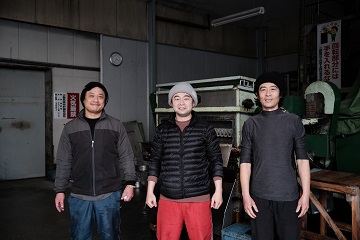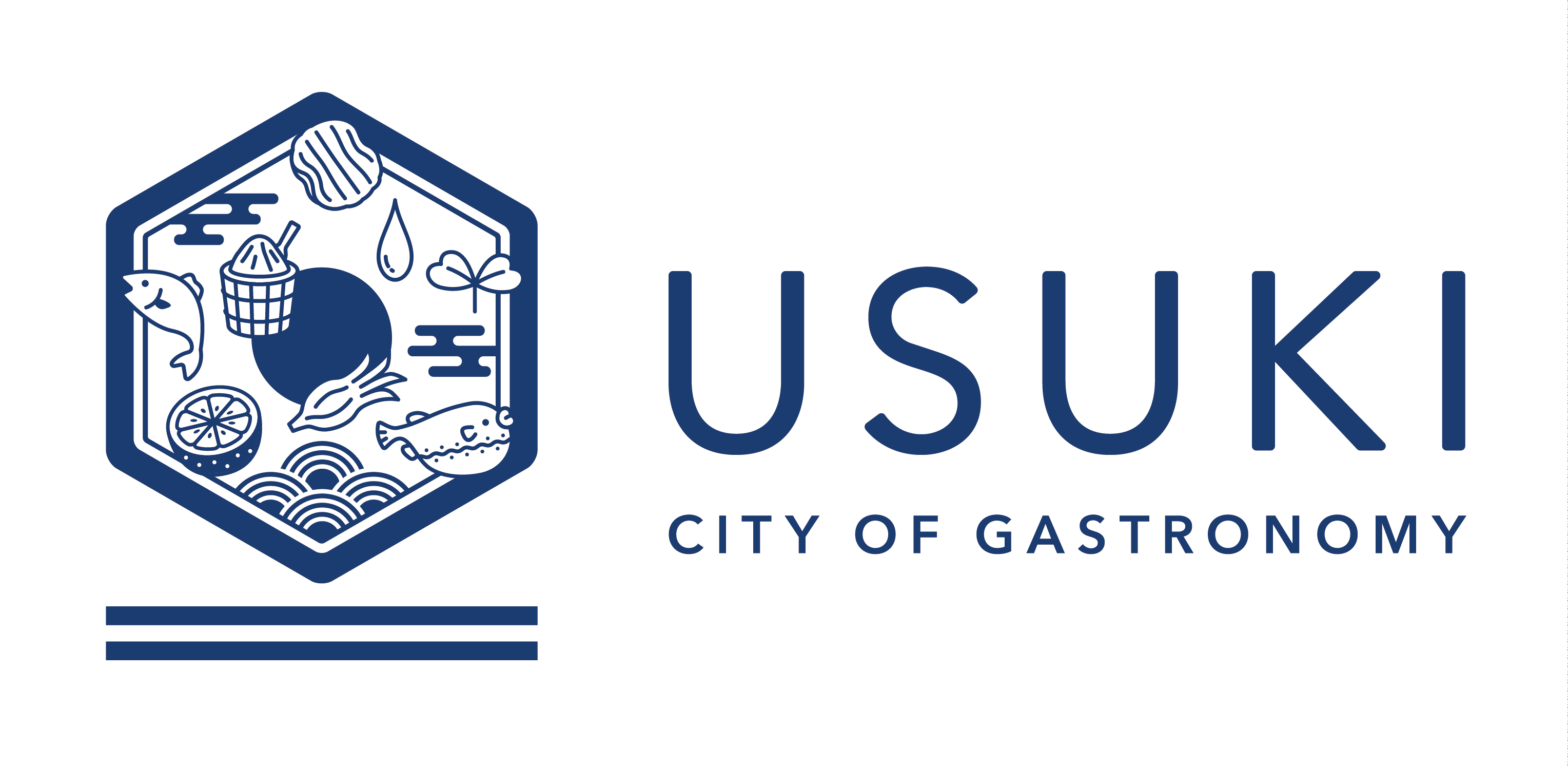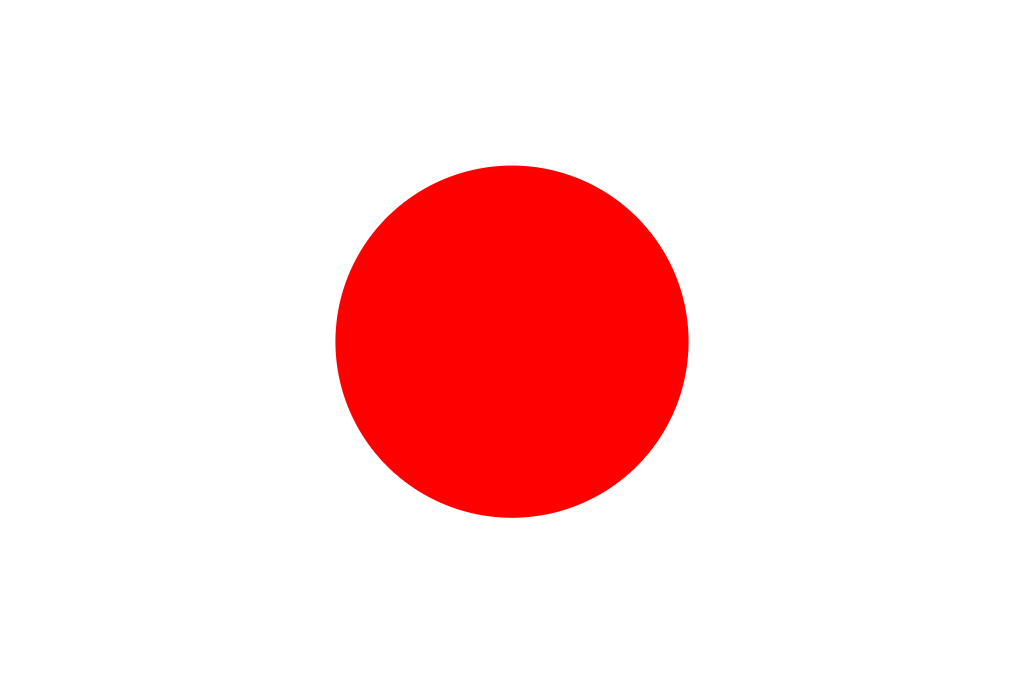Our Tokubetsu Junmai Muroka Namagenshu - USUKI Mash (Moromi) (February 10, 2021)
-360.jpg)
It has been 16 days since we finished preparing the mash (moromi) for our tokubetsu junmai muroka namagenshu - USUKI.
The fruity scent is pleasant on the nose and the foam appears active. The fermentation is proceeding smoothly.
The pressing (joso) is scheduled for around Friday, February 19.
Dekoji - Taking the Koji Out [Honjozo] (February 8, 2021)
Once the koji enzymes have done their job, the operation of taking the koji out of the koji room begins. The process of exposing the koji to the lower temperature of the outside air and stopping the growth of aspergillus is called dekoji. The finished koji is spread out in a dry room where it cools, awaiting the next stage. This “drying out” phase is called karashi.
The koji in the video is for our honjozo - Ichinoide Namazake that uses processed rice from Oita Prefecture for the sake brew (rice polishing ratio - 65%).
Our Tokubetsu Junmai Muroka Namagenshu - USUKI’s Mash (Moromi)(February 3, 2021)
The mash (moromi) for our tokubetsu junmai muroka namagenshu - USUKI, has been fermenting for 9 days, and it’s looking good. The pressing (joso) is scheduled for around Friday, February 19.
Thank you! Mr. Hasegawa (February 1, 2021)
Today is Mr. Hasegawa’s last day. He has been participating in the “Hometown Working Holiday Project”, experiencing sake brewing. Rather than just experiencing it from the sidelines, Mr. Hasegawa got involved and enthusiastically participated in the sake brewing process. He was genuinely a great help to us!
In the morning, we completed the second stage (naka-zoe) of our mash preparation for the tokubetsu junmai. Wakamizu, a rice that is known to produce fantastic sake, cultivated in Usuki City, was steamed, cooled in a cooler, and put into the mash (moromi) tank.
It is Getting Cold! (January 29, 2021)
Usuki City is very cold this morning, -1℃, and the maximum temperature is only expected to reach 6℃. Even in such harsh weather, sake production continues quietly.
Mr. Hasegawa, who is participating in the “Hometown Working Holiday Project”, has got used to working in our sake brewery.
Three People (January 26, 2021)

From the left to right, Toji Matsuno, Mr. Hasegawa, and Mr. Murakami.
Mr. Hasegawa, is participating in the “Hometown Working Holiday Project”, experiencing sake brewing. He has completely integrated himself into our brewery. We hope that we can produce some fantastic sake together.
A Scene of Afternoon Work... (January 25, 2021)
Preparation for the tokubetsu junmai mash is underway. The Wakamizu rice (about 500g) is being washed, soaked, and drained. The daiginjo mash is also fermenting nicely.
Mr. Hasagawa, who is experiencing sake brewing, has become quite accustomed to his role in our team.
Hometown Working Holiday Project (January 22, 2021)
Mr. Hasegawa, from Nagoya, is participating in the “Hometown Working Holiday Project”, and has been experiencing sake brewing with us since yesterday (Prior to his arrival he received a PCR test - confirmed negative).
In the morning, we steamed the rice that will later become koji for our tokubetsu junmai. We then prepared it and carried it into the koji room. As the hard work continued, Mr. Hasegawa remained inquisitive and full of energy. We think he’s doing very well and interacting nicely with the team, Toji Matsuno and Mr. Murakami.
Rice Preperation for the Second Stage - Naka-zoe・Tokubetsu Junmai (January 21, 2021)
 |
 |
Today we washed the rice for koji that will be added during the second stage (naka-zoe) of the mash for our Tokubetsu Junmai. Mr. Hasegawa, who is participating in the “Hometown Working Holiday Project”, has proven himself to be very reliable and really contributed to the lively atmosphere within the brewery.
Tome Shikomi - Daiginjo (January 18, 2021)
To make our primary mash (moromi) we use a 3-stage process. The first stage is called hatsu-zoe (first preparation); the second stage is called naka-zoe (middle preparation); and the third and final stage is called tome-zoe (final preparation).



 日本語
日本語